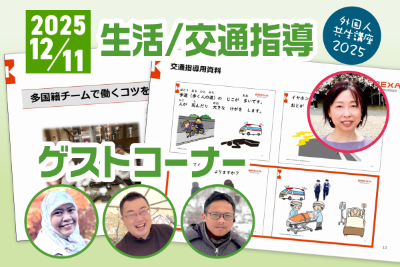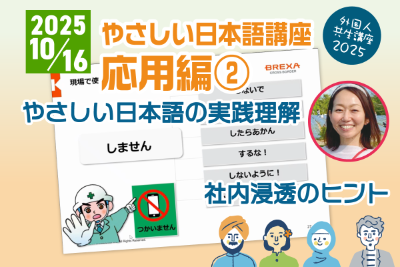- やさしい日本語
- ひらがなをつける
- Language
We provide multilingual content through machine translation. Translation accuracy is not 100%. About the multilingualization of the JAC website
- About JAC
- JAC Membership Information
- Specified Skilled Worker Acceptance
- Specified Skilled Worker Overview of the system
- 10 Mandatory Assistance for Foreigners
- Online individual consultation
- Seminar on Coexistence with Foreign Nationals
- Leading examples of host companies
- Case studies collection "Visionista"
- Foreigner's Voice
- Foreign Resident Acceptance Manual / Q&A
- Useful column "JAC Magazine"
- Acceptance support services
- Specified Skills Acceptance Support Service
- Skills improvement support
- Online Special Education
- Skill training
- Japanese Language Course
- Education and Training Support
- Subsidy system for obtaining qualifications
- Support for creating a comfortable workplace
- Temporary Return Support
- CCUS charge support
- Support system for promoting the accumulation of employment history
- Post-acceptance training
- Compensation system for Specified Skilled Worker (i)
- Daily life support
- Medical interpretation support
- Support for daily life problems
- freeJob matching
- The Specified Skills Evaluation Exam
- Home
- JAC Magazine
- Specified Skilled Worker System Key Points
- What is the number of people accepted for Specified Skilled Worker? Is there a limit to the number of people in the construction field?
- Home
- JAC Magazine
- Specified Skilled Worker System Key Points
- What is the number of people accepted for Specified Skilled Worker? Is there a limit to the number of people in the construction field?

What is the number of people accepted for Specified Skilled Worker? Is there a limit to the number of people in the construction field?
I wrote the article!
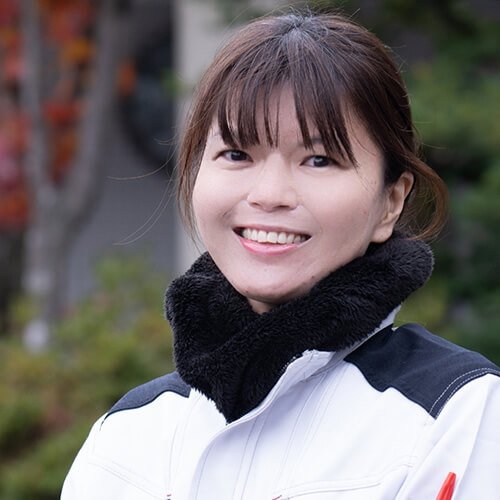
(One company) Japan Association for Construction Human Resources
Chief of Research and Development Department / Administration Department / Public Relations Department
Motoko Kano
(Kano Motoko)
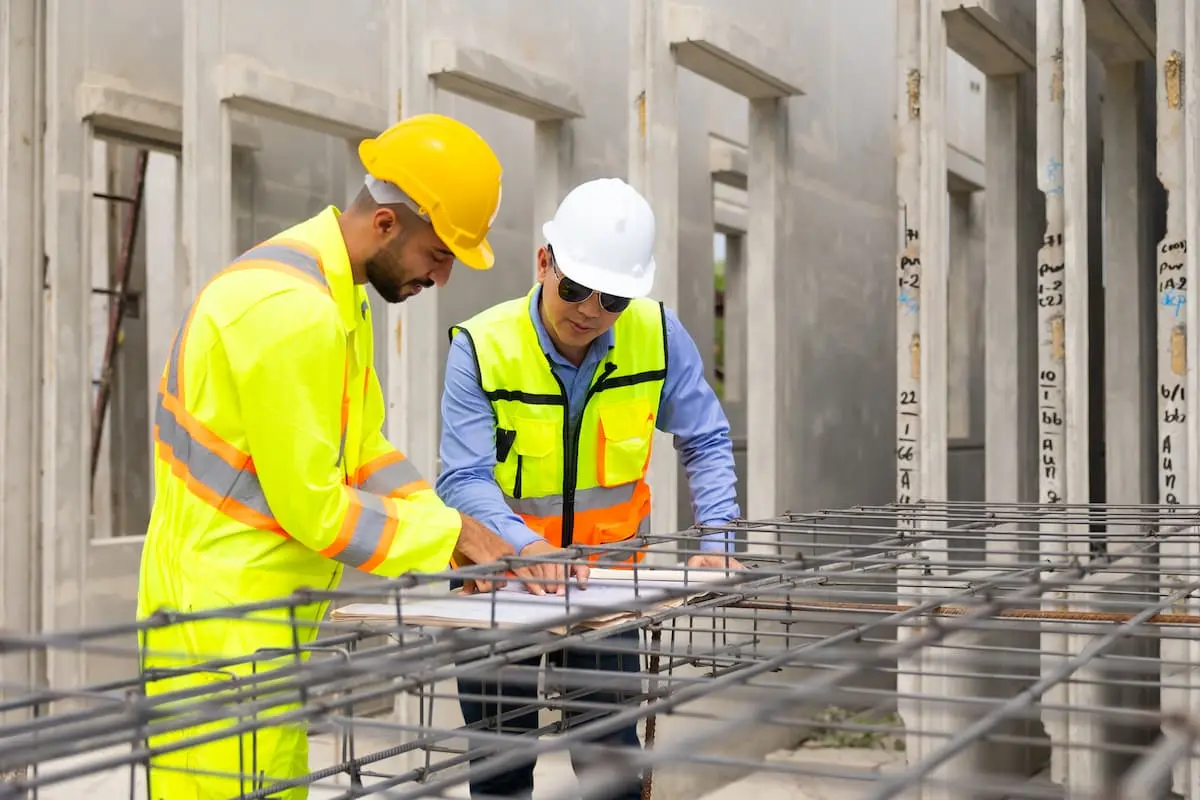
Hello, this is Kano from JAC (Japan Association for Construction Human Resources).
Created in 2019 to solve the serious labor shortage in Japan, the "Specified Skills of residence status".
Since there is a limit on the number of people accepted in Technical Intern Training, which is also one of the status of residence, many people may wonder if there is a limit on the number of people in Specified Skills.
In this article, we will explain the number of people in Specified Skills.
In the case of Specified Skills, there are various things you should be aware of about the number of people you should know, such as limits on the number of people for each company depending on the field, and the upper limit of the number of people accepted by the entire country.
We will also explain the current status of acceptance, so please refer to it.
Check the number of people that can be accepted in Specified Skilled Worker (number of people)
Specified Skills is a status of residence granted to "foreigners who have specialized knowledge and skills, have a high level of Japanese skills, and can work as a ready-to-work force" to solve the serious labor shortage in the Japan.
Specified Skilled Worker does not have a limit on the number of people you can accept.
However, the expected number of acceptance in Japan as a whole over the next five years from 2024 has been set, and it is 820,000 across all industries.
Although there is no limit to the number of people accepted for Specified Skills, the upper limit is set from the perspective of how much labor should be needed for the number of people who are expected to be in short supply.
The expected number of people to accept Specified Skilled Worker (i) (upper limit of acceptance) by industry is as follows.
- Nursing care: 135,000 people
- Building cleaning management: 37,000 people
- Industrial product manufacturing industry (formerly: Basic materials, industrial machinery, and electrical, electronic, and information-related manufacturing industries): 173,300 people
- Construction: 80,000 people
- Shipbuilding and ship machinery industry: 36,000 people
- Automobile repair and maintenance: 10,000 people
- Aviation: 4,400 people
- Accommodation: 23,000 people
- Agriculture: 78,000
- Fisheries: 17,000 people
- Manufacture of food and beverages: 139,000 people
- Food service industry: 53,000 people
- Automobile transportation business: 24,500 people
- Railway: 3,800 people
- Forestry: 1,000 people
- Wood industry: 5,000 people
*Reference: Resetting of the expected number of Specified Skilled Worker System (2024 Cabinet decision on March 29)
In addition, there is a limit on the number of people accepted by each company in the nursing care and construction fields.
I will explain this in detail later.
There is a status of residence similar to Specified Skills" Technical Intern Training", but Technical Intern Training is a status of residence for international contribution, which is to "acquire skills in Japan and bring them back to your home country to make use of them".
Although they are common in terms of "accepting foreigners at the company", Technical Intern Training has a limit on the number of people.
The differences between Specified Skills and Technical Intern Training are explained in more detail in this column, so please refer to them.
10 differences between Specified Skills and Technical Intern Training. Know the advantages and precautions before considering them.
In the construction and Specified Skills care fields, there is a quota (limit on the number of people) for the number of people that can be accepted by each company or business.
In the construction and nursing care fields, there is a quota for the number of people that can be accepted for each Accepting Organizations.
The number of people accepted is determined as follows.
- Construction sector: The number of Specified Skilled Worker (i) does not exceed the total number of full-time employees (excluding foreign Technical Intern Training students, Specified Skilled Worker (i)) of Accepting Organizations
- Long-term care field: The Specified Skilled Worker (i) that can be accepted at the business establishment shall be limited to the total number of full-time nursing care staff, such as Japan people, on a business site basis.
The "etc." of Japan nationals in the nursing care field include foreigners who have passed the National Examination for Long-Term Care and Welfare, foreigners who are residing under the status of residence "Nursing Care", and foreigners who are residing under the status of residence based on status and status.
In addition, the government cites the following three reasons why there is a cap on every Accepting Organizations in the construction sector.
- Since the work location of construction technicians changes depending on the construction project, work management for each site is required.
- Remuneration for work may vary depending on the season and construction order situation.
- Particularly for foreigners, it is necessary to consider ensuring a proper working environment.
The following conditions are also imposed on Accepting Organizations (Specified Skills affiliated institutions, etc.).
- Preparation of an acceptance plan that clearly states the expected remuneration of foreign nationals, etc.
- Confirmation of plan implementation status through inspection, certification and on-site visits by the Minister of Land, Infrastructure, Transport and Tourism
- Registering the host company and Specified Skilled Worker (i) with the Construction Career Up System
- Join the company which carry out the business of hiring specified skilled workers (JAC)
In order to be certified for an acceptance plan, Specified Skilled Worker must be hired directly, and the treatment must be the same as that of Japan who perform the same work, and there are several other conditions, such as:
- The receiving company must be licensed under Article 3 of the Construction Business Law.
- Registering the host company and Specified Skilled Worker (i) with the Construction Career Up System
- the company which carry out the business of hiring specified skilled workers Membership in the (JAC) and compliance with the Code of Conduct formulated by the corporation
- Specified Skilled Worker The amount of remuneration is equal to or greater than that of Japan with equivalent skills, stable wage payment, and salary increase according to skill mastery
- Prior written explanation of important contractual matters such as wages (in a language that foreigners can fully understand)
- Specified Skilled Worker (i) After acceptance, the Minister of Land, Infrastructure, Transport and Tourism will have them take a course or training designated by the Minister of Land, Infrastructure, Transport and Tourism
- Acceptance of on-site guidance by the government or appropriate employment supervision organizations regarding the proper implementation of acceptance plans, etc.
*Quoted from: Ministry of Land, Infrastructure, Transport and Tourism, Acceptance of foreign human resources in the construction sector
The following column also provides detailed information on how to employ foreigners in the construction industry.
Explaining how to accept foreign workers in the construction industry and the preparations to do so!
Let's also know the current status of the number of people accepted by Specified Skilled Worker

There is no limit to the number of people accepted for Specified Skilled Worker outside of the construction and nursing care fields, but how many people are currently accepted?
For reference, the number of foreigners living in Specified Skills (Specified Skilled Worker (i)) announced by Immigration Services Agency of Japan is introduced.
*Figures are preliminary figures. This data is based on data as of the end of December 2023, and the figures may change in the future.
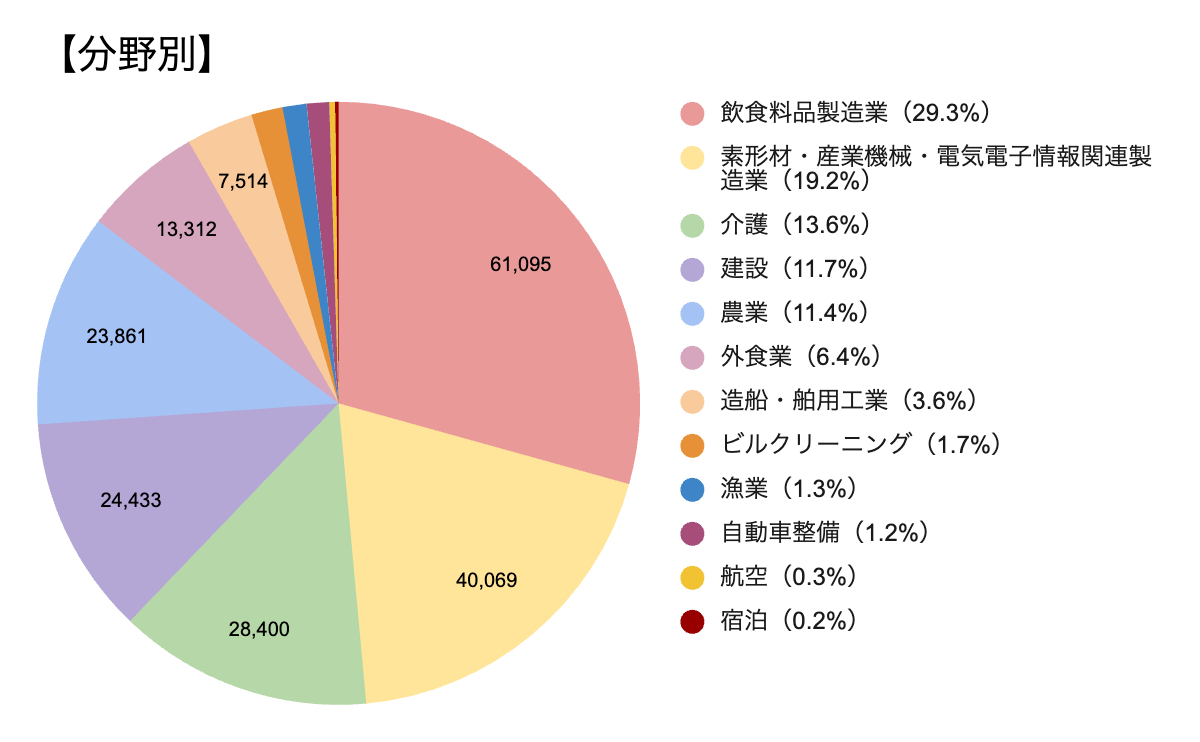
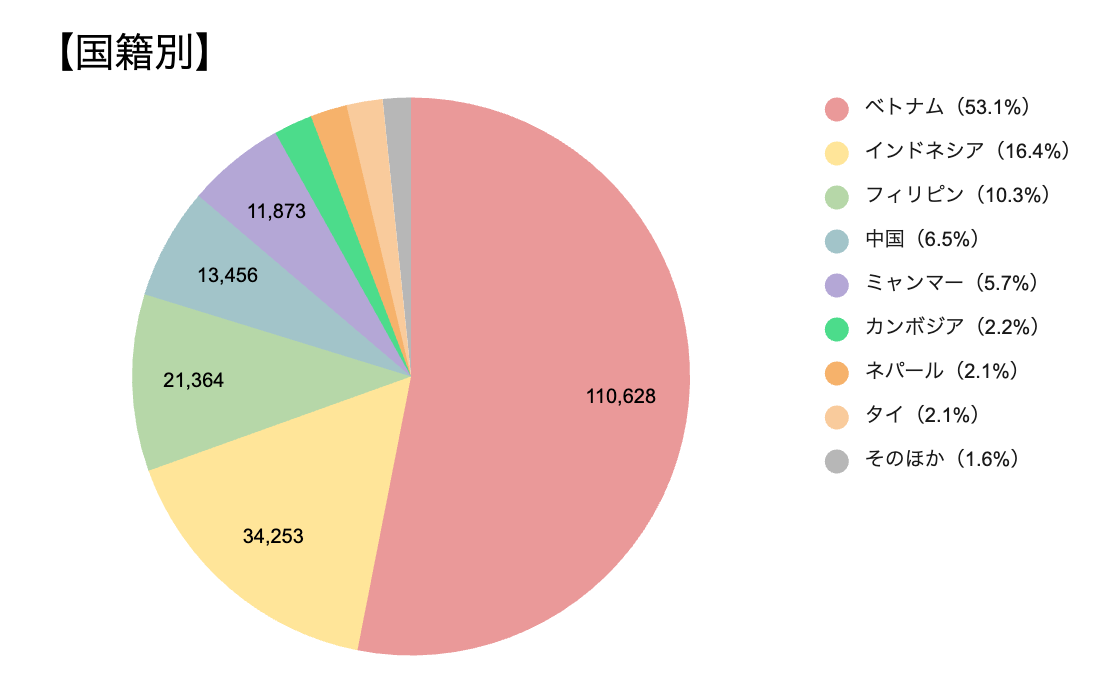
Looking at this table, it can be said that the number of people accepted is higher in industries with a significant shortage of human resources.
One of the reasons for this is that the Manufacture of food and beverages field is still limited in terms of what can be managed by machines compared to other industries, and the need to secure human resources is high.
The manufacturing fields of raw materials, industrial machinery, and electrical and electronic information also require a lot of manpower to work in factories, so the number of people accepted is higher than in other fields.
Labor shortages are also a problem in the construction industry.
Currently, there are initiatives such as the "Declaration of Specified Skilled Worker Safety and Security Acceptance in the Construction Field" that allow you to work with peace of mind in the Japan, so the acceptance of Specified Skilled Worker is increasing.
In addition, Specified Skilled Worker (i) Vietnamese are the overwhelming majority of foreign residents.
Next are Indonesians and Filipinos.
We have introduced each national character in detail in this column, so please refer to it.
What is Vietnam's national character? Introducing personality and communication tips!
What is the national character of the Philippines? Introducing personality and communication tips!
What is Indonesia's national character? Introducing personality and communication tips!
In addition, the numbers are listed by prefecture, with Aichi Prefecture having the highest number of 17,632, followed by Osaka Prefecture with 13,275, Saitama Prefecture with 12,396, Chiba Prefecture with 12,293, and Tokyo with 11,360.
The number of accepted students tends to be higher in major cities than in regional cities.
Summary: There is no limit to the number of people accepted with Specified Skills. However, check the restrictions in the construction and nursing care fields!
Specified Skills is a new status of residence established in 2019 to solve the labor shortage in Japan, and unlike Technical Intern Training, there is no limit on the number of people who can be accepted.
However, the upper limit of the expected number of people to accept is set based on the forecast of labor shortages.
In addition, among Specified Skills, construction and nursing care have a limit on the number of people according to the size of the Accepting Organizations.
As of 2023, many Specified Skilled Worker are already active in different regions and verticals of the Japan.
If you are a company that is considering accepting Specified Skilled Worker in the construction industry, please feel free to contact JAC!
We also introduce Specified Skilled Worker.
*This article is based on information as of February 2023.
*Added in May 2024
The author of this article

(One company) Japan Association for Construction Human Resources
Chief of Research and Development Department / Administration Department / Public Relations Department
Motoko Kano
(Kano Motoko)
Born in Aichi Prefecture.
He is in charge of public relations, research and investigation, and is the person behind social media.
We update our social media accounts daily with the desire to make people fall in love with Japan, to spread the appeal of construction from Japan to the world, and to ensure that Japan's construction industry continues to be the industry of choice around the world.
He is also engaged in research into the feasibility of implementing skills evaluation exam in Asian countries, and is conducting interviews with local organizations in each country.
Related articles

What is the estimated cost to pay for Registered Support Organizations? See how you can support yourself
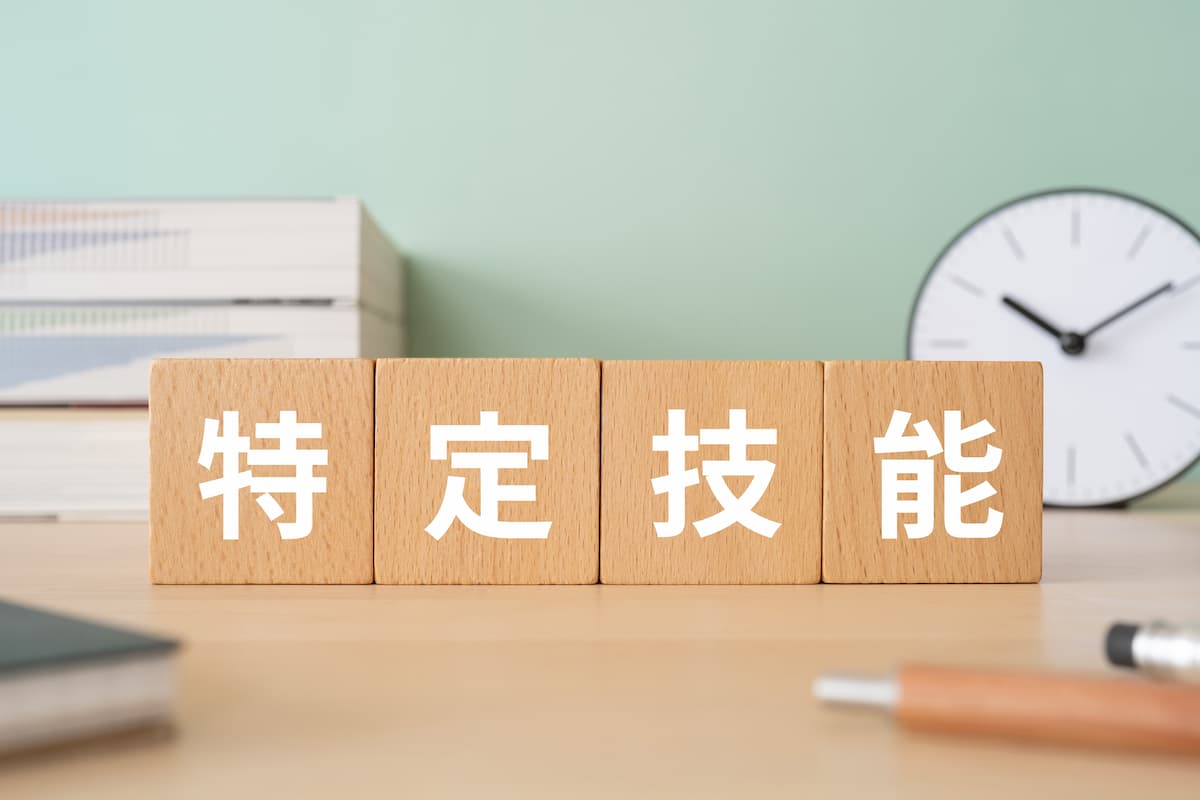
What is Registered Support Organizations? Introducing the content of support in an easy-to-understand manner

What is the "life orientation" that is carried out when hiring a Specified Skilled Worker?
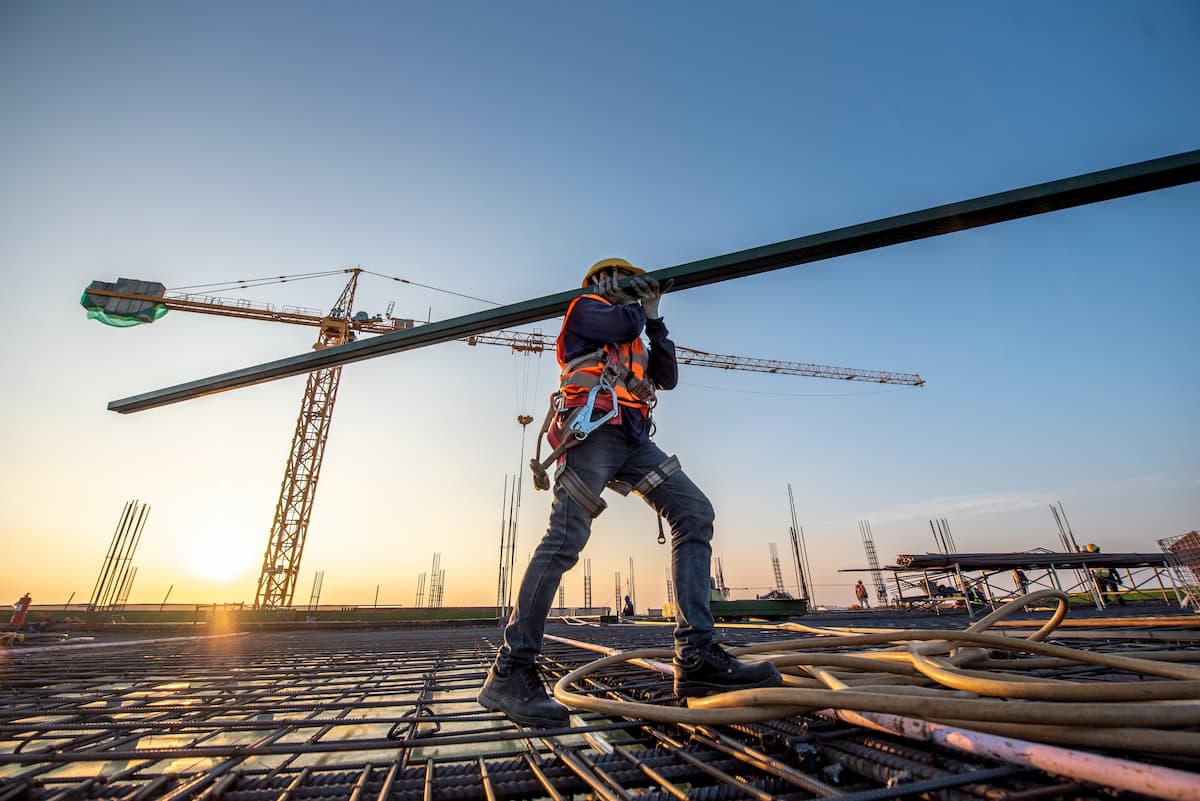
What is Construction Career Up System (CCUS)? Explaining its contents and how to use it!














